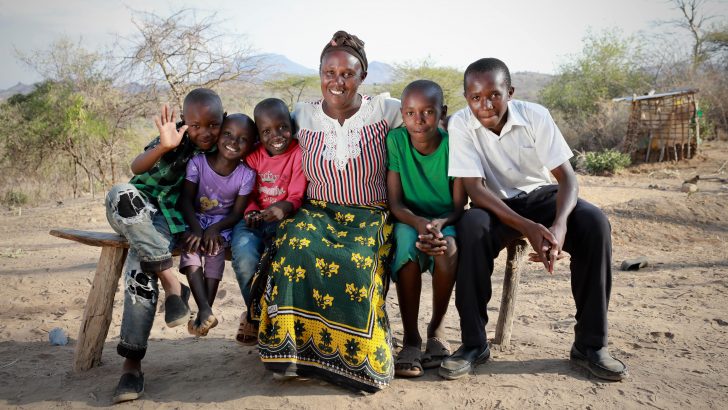Eoin Wrenn
My recent visit to Ethiopia reinforced just how vulnerable some countries in Africa are to climate change but also gave me hope that communities can, and indeed are, adapting to the challenges posed by this crisis.
I was privileged to spend a few days close to the border of Eritrea where Trócaire has been working for a number of years with communities who face regular droughts. Older members of the community spoke of how the climate is now totally erratic compared to the past – the rains no longer come on time, if they come at all, and when it does rain it is much more intense which results in flooding and crop destruction. I witnessed this myself.
While traveling in a region called Afar, which is extremely mountainous and usually extremely hot, we faced severe flooding which was so bad that it washed parts of the road and a local bridge away and we had to take a five-hour detour to get to where we were going.
In a village called Sebeya I spent time with women and men who have been part of a Trócaire project for the past three years and they spoke with great pride of how the project has transformed their ability to live off the land.
With labour provided by the community we were able to build over 5km of small irrigation canals connected to a solar-powered pump which pumps the water from a local river along the canals.
Families spoke of how they now can grow crops at least twice a year and they no longer go hungry unlike in the past when nothing grew if the rain didn’t come. Over 220 families in the village have benefitted from the project.
They grow cabbages, tomatoes, avocados and many different types of fruit, keeping what they need for their families and then selling any excess. With that new income they are able to pay medical and school bills. In another nearby village we supported landless youth to rehabilitate deforested hillsides and now soil fertility is increasing and those young people are able to grow crops on the hillside.
Challenges
Another example of someone fighting against the effects of climate change is to be found on this Lent’s Trócaire Box.
Madris Nginya is living on the edge, struggling to survive after two seasons of failed rains. As climate change exacerbates the situation for farmers in Kenya, Madris manages to support her children and keep going, despite the challenges she faces every day.
A changing climate is hitting countries like Kenya hard, countries that have contributed little to this global problem. It is a deep injustice that families like Madris’ are feeling some of the worst impacts of a warming planet, yet their carbon footprint is minimal.
45-year-old Madris walks around her dusty brown patch of land beside her small home, where she lives with her six children. There are no crops visible, just a few scraggy bushes. It shouldn’t be this brown and dusty at this time of year. Yet after successive failed rains, there is little sign of any green growth on Madris’ land.
Furthermore, there are still many more months to go before the next rainy season. “When I look at my land now, it looks to me like a desert. I feel very bad when the rains don’t come because all my plants depend on rainfall,” she says.
Her home in Iria-itune in the eastern region of Kenya is small and basic, made of wooden poles and mud, with a corrugated iron roof. There are only two small rooms for her and her children, and there is no running water or electricity.
She and her family are like many in Kenya who are struggling to make ends meet, given the failed rains. As the planet warms, drought is becoming more frequent in the arid areas of this country.
Madris can no longer depend on food or income from farming to survive. She has to rely on rearing chickens and goats, and engaging in casual labour such as collecting and selling firewood. Without a steady income she struggles to feed her family and to pay their school fees.
Madris has been supported by Trócaire’s local partner, Ishiara parish. She has received chickens, and has been taught new methods of farming, how to harvest rainwater and how to prevent livestock diseases.
She has been supported to join a savings and loans group which enables her to receive an additional income during the dry months, and to get support and help from other women.
These are just small examples of how with a little support and encouragement communities suffering the most from climate change can adapt, and indeed thrive, despite the challenges they face.
Eoin Wrenn is Horn and East Africa Head of Region for Trócaire. For more informatin, check www.trocaire.org


 Madris with five of her children in eastern Kenya. Photo: Gary Moore
Madris with five of her children in eastern Kenya. Photo: Gary Moore 